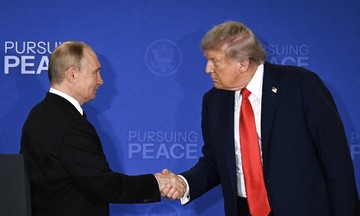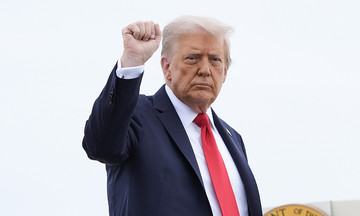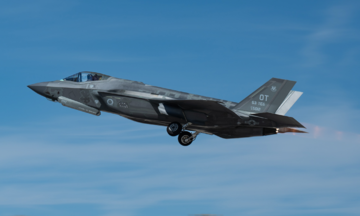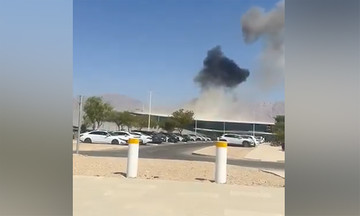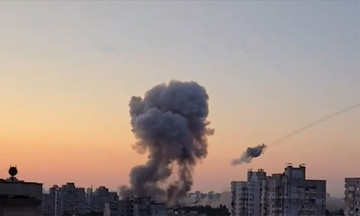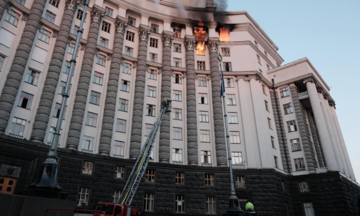Israel has killed thousands of Hamas fighters, eliminated most of its top military commanders, and destroyed numerous weapons caches and the network of underground tunnels the group controlled in Gaza. The Israeli campaign has left tens of thousands of civilians dead, reduced cities to rubble, and plunged the population into dire straits.
Hamas, however, wants to continue to exist in Gaza and has so far refused to yield to its adversary. This stems from a deeply ingrained ideology, experts say.
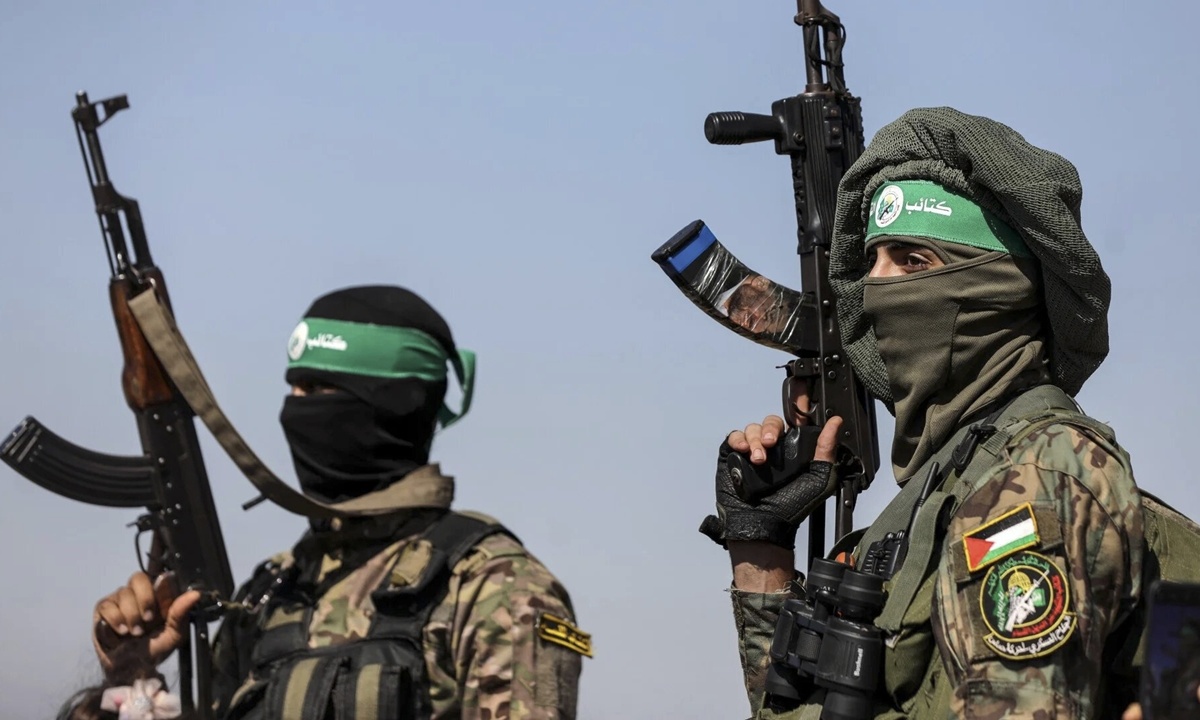 |
Hamas fighters in central Gaza Strip in 2023. Photo: Reuters |
Hamas fighters in central Gaza Strip in 2023. Photo: Reuters
Since Hamas's raid into southern Israel on 7/10/2023, which sparked the conflict in Gaza, the group's leaders have acknowledged the devastating impact of Israel's counteroffensive. But Hamas insists this is the "price" to pay for "ultimate freedom".
Some Hamas leaders say their goal is not to defeat Israel on the battlefield but to draw Tel Aviv into an intractable conflict, isolating it diplomatically and eroding international support. They believe this will force Israel to recognize that its policies toward the Palestinians are wrong and unsustainable.
"The word 'surrender,' as Israel and the US are calling for, is not in Hamas's dictionary," said Khaled al-Hroub, a professor at Northwestern University in Qatar.
According to a senior Middle Eastern intelligence official familiar with the matter, Izz al-Din al-Haddad, the head of Hamas's military wing, recently stated that if a "worthy" agreement cannot be reached to end the confrontation with Israel, the conflict will ultimately become a war of liberation for Hamas, and its members are ready to "die for the cause".
For Hamas, a "worthy agreement" must end the fighting and allow the group to retain power in Gaza. Hamas has agreed to ceasefires with Israel in the past, partly to ease the burden on the people of Gaza. However, the group steadfastly refuses to end the fighting on Israel's terms, which include disarming and sending its leaders into exile.
There is no sign that Hamas is changing its stance. Last week, the group issued a statement reiterating that it is prepared to accept a deal where all remaining hostages in Gaza are freed in exchange for some Palestinian prisoners, but Israel must withdraw its forces for the conflict to end.
But Israeli Prime Minister Benjamin Netanyahu accepts only two options: the complete destruction of Hamas by force, or the group's disbandment through negotiation. He rejects any agreement to end the conflict that would allow Hamas to continue to exist.
Civilians in Gaza are paying the highest price as the conflict continues.
"Have Hamas's weapons stopped Israel from killing us?" asked Abdullah Shehab, 32, who is staying with his sister in Gaza City. "Have they stopped Israel from controlling our cities? The only thing they have done is give Israel an excuse to continue the wars."
According to Israeli officials, the Hamas raid in October 2023 killed about 1,200 Israelis and resulted in the abduction of about 250 others. Hamas celebrated the attack, but more than 60,000 people in Gaza have died in Tel Aviv's retaliation.
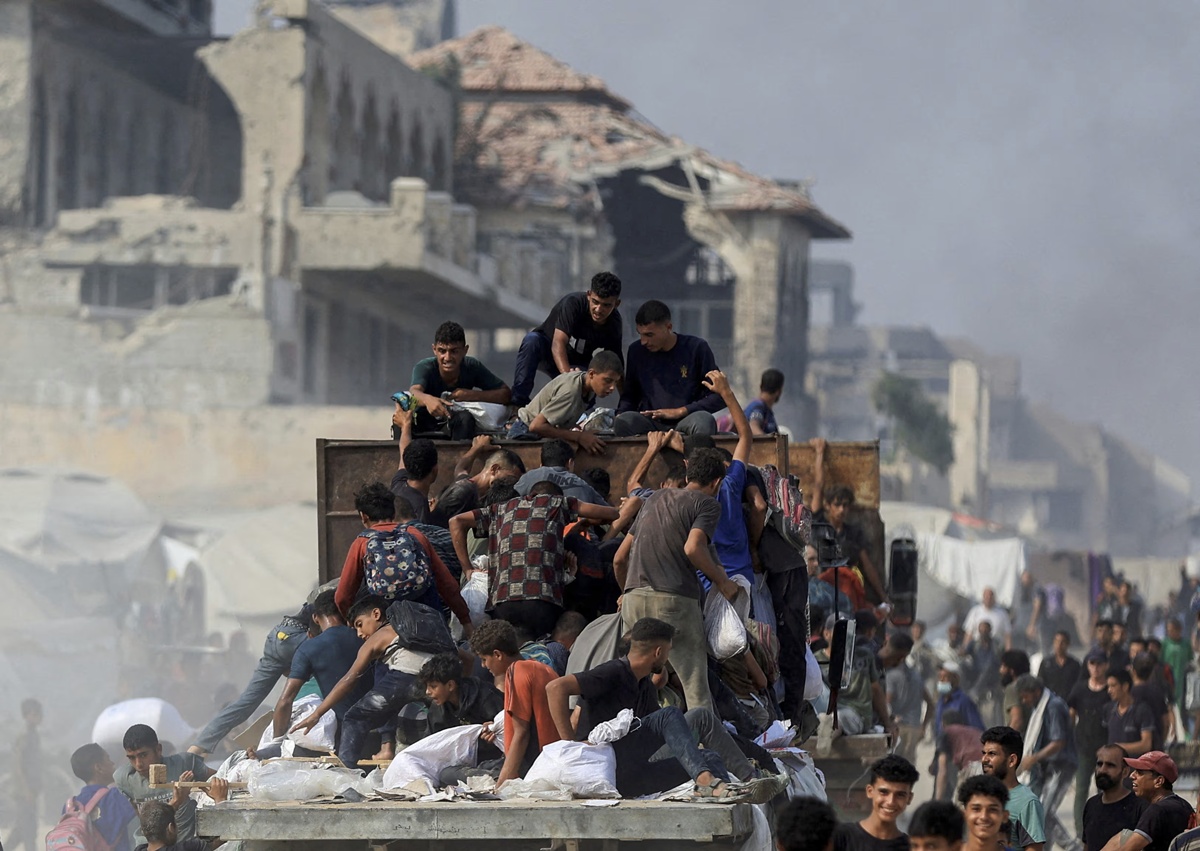 |
Palestinians scramble for aid in Beit Lahia, northern Gaza Strip, in August. Photo: Reuters |
Palestinians scramble for aid in Beit Lahia, northern Gaza Strip, in August. Photo: Reuters
Observers say the irreconcilable positions of Hamas and Israel on how to end the conflict mean that the fighting will not stop until one side is forced to compromise. According to Palestinian political analysts, Hamas still believes that Israel will eventually accept a deal that does not require the group to make concessions.
"Hamas knows that continuing the fighting will come at a very high price, but they hope to achieve an acceptable agreement if they are patient and steadfast," said Esmat Mansour, a Palestinian analyst who spent years in Israeli prisons alongside several senior Hamas leaders.
"They see the internal and external pressures on Israel to consider ending the campaign, and Hamas knows that Israel cannot free the hostages without them," he added. "So, they say to themselves, 'Why should we surrender when we can get a better deal?'"
However, Mansour noted that Hamas may also have accepted the reality that to maintain some power, they need to make difficult concessions, such as halting recruitment and military training, storing their weapons, possibly under third-party supervision.
Ibrahim Madhoun, a Palestinian analyst close to Hamas, said the group needs a "way out" of the war. "The problem is that Israel has closed all exits," he said.
Publicly, Hamas still refuses to consider discussing giving up its weapons or sending its commanders into exile. Husam Badran, a senior member of the group, explained that their refusal to surrender is to protect the Palestinians.
"We are dealing with an extremist government that has carried out massacres of our people and still plots to kill, slaughter, and expel them," Badran said. "We cannot stop defending ourselves and our people when the international community is powerless, and the US is on their side."
He affirmed that without a clear political agreement to protect the Palestinian people and their land, Hamas "will continue to fight".
Gaza residents are facing the prospect of the war possibly extending into its third year. Though angered by Israel's relentless attacks, many are also frustrated with Hamas.
"We are trapped," said Shehab, who was displaced and is staying with his sister in Gaza City. "Really, the only difference between our people and the Israeli hostages is that we are above ground and they are underground."
Vu Hoang (AFP, Reuters, AP)



